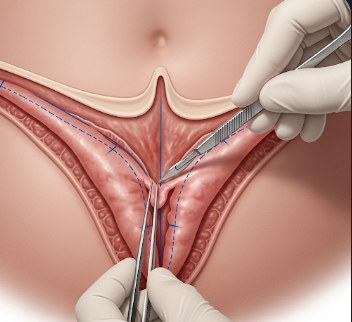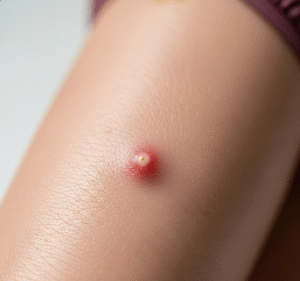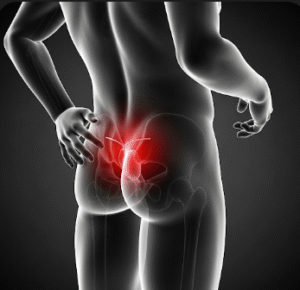Overview
A vestibulectomy is a surgical procedure aimed at treating vulvar vestibulitis or localized vulvar pain (vestibulodynia). The surgery involves removing the painful tissue around the vaginal opening (vestibule) to relieve chronic discomfort during sexual activity, tampon use, or daily activities.
South Korea is recognized for advanced gynecological and vulvar care, offering expert surgeons, minimally invasive techniques, and comprehensive postoperative support. Patients benefit from effective pain relief, improved sexual function, and enhanced quality of life.
Vestibulectomy is typically recommended for women who:
- ➤ Experience chronic vulvar pain unresponsive to conservative treatments
- ➤ Have localized pain in the vestibule interfering with sexual activity
- ➤ Seek surgical intervention after failed medications, physical therapy, or topical treatments
- ➤ Desire long-term relief and improved vulvar function
What is Vestibulectomy?
Vestibulectomy is a minor gynecological surgery where the affected tissue of the vulvar vestibule is excised. The procedure can be partial or wide depending on the extent of the affected area.
Key points:
- Typically performed under local anesthesia with sedation or general anesthesia
- Minimally invasive with precise removal of only the painful tissue
- Can be performed as an outpatient or short-stay hospital procedure
- Korean hospitals utilize advanced surgical tools, sterile techniques, and precision excision to maximize patient comfort and outcomes
What are the Benefits?
✔ Significant reduction or elimination of vestibular pain
✔ Improved sexual function and comfort
✔ Minimally invasive with precise tissue removal
✔ Short recovery period and rapid return to daily activities
✔ Korean clinics provide advanced surgical care, postoperative support, and follow-up
Additional benefits include:
- ➤ Targeted treatment for localized vestibular pain
- ➤ Can be combined with postoperative pelvic floor therapy for optimal results
- ➤ Long-term improvement in quality of life and sexual satisfaction
- ➤ Expert gynecological care minimizes risk of complications
Procedure Details:
1) How should I prepare for Vestibulectomy?
- ● Medical evaluation: Gynecological exam to confirm diagnosis and extent of affected tissue
- ● Medical history: Review medications, allergies, and prior pelvic surgeries
- ● Preoperative instructions: Fasting if general anesthesia is planned
- ● Consent and counseling: Discuss procedure, expected outcomes, and potential risks
- ● Korean hospitals: Provide comprehensive preoperative assessment, patient counseling, and personalized surgical planning
2) What happens during the procedure Vestibulectomy?
- ➤ Anesthesia: Local anesthesia with sedation or general anesthesia depending on patient and surgeon preference
- ➤ Surgical steps:
- Patient positioned in lithotomy position
- Painful vestibular tissue carefully excised while preserving surrounding healthy tissue
- Wound edges sutured using absorbable stitches
- Hemostasis ensured to minimize bleeding
- ➤ Duration: Approximately 60–90 minutes
- ➤ Korean advantage: Surgeons use microsurgical techniques, sterile operating environment, and precision excision to reduce discomfort and optimize outcomes
3) What happens after Vestibulectomy?
- ● Immediate care: Mild swelling, redness, or discomfort at surgical site
- ● Activity: Avoid sexual activity and tampon use for 4–6 weeks; gentle hygiene recommended
- ● Pain management: Analgesics prescribed for initial discomfort; cold packs may help reduce swelling
- ● Follow-up: Routine gynecological assessment to monitor healing and manage complications
- ● Korean hospitals: Offer structured postoperative follow-up, pelvic floor therapy guidance, and patient education
Risks / Benefits
✔ Benefits:
- ✦ Significant pain relief and improved sexual function
- ✦ Minimally invasive with precise tissue removal
- ✦ Short recovery period and improved quality of life
- ✦ Long-term relief for women with chronic vestibular pain
⚠ Possible Risks (rare):
- ➔ Temporary swelling, redness, or bruising
- ➔ Infection at surgical site
- ➔ Scarring or narrowing of vaginal opening
- ➔ Persistent or recurrent pain (rare)
- ➔ Bleeding during or after procedure
- ➔ Rare need for revision surgery if pain persists
Recovery and Outlook
- ➤ Immediate recovery: Mild discomfort, swelling, or tenderness for 1–2 weeks
- ➤ Activity: Avoid sexual activity, tampon use, and strenuous exercise for 4–6 weeks
- ➤ Long-term outlook: Most women experience significant improvement in pain, sexual function, and overall quality of life
- ➤ Korean advantage: Hospitals provide multidisciplinary support, postoperative care, and optional pelvic floor therapy to ensure optimal recovery
When To Call the Doctor
Contact your doctor if you notice:
- ⚠ Fever or signs of infection
- ⚠ Persistent or worsening pain beyond expected recovery
- ⚠ Excessive bleeding or discharge from surgical site
- ⚠ Difficulty with urination or unusual swelling
- ⚠ Any concerns about wound healing or discomfort
Best Korea Option / Process
South Korea is a leader in minimally invasive gynecological surgery, including vestibulectomy, due to:
- 🌟 Highly skilled gynecologists specializing in vulvar surgery
- 🌟 Precision surgical techniques with sterile operating environment
- 🌟 Minimally invasive procedures with rapid recovery
- 🌟 Comprehensive postoperative care and patient support
- 🌟 Multilingual support for international patients seeking safe and effective vulvar surgery
Top Korean Hospitals for Vestibulectomy:
- ✅ Seoul National University Hospital (Gynecology Dept.)
- ✅ Asan Medical Center
- ✅ Samsung Medical Center
- ✅ Severance Hospital (Yonsei University)
- ✅ Bundang CHA Hospital
✅ Quick Highlights Recap
- ➤ Surgical procedure to remove painful vestibular tissue
- ➤ Effective for chronic vulvar pain and vestibulodynia
- ➤ Minimally invasive with precise excision and rapid recovery
- ➤ Rare risks, mostly manageable with expert care
- ➤ Korean hospitals provide advanced surgical techniques, structured postoperative care, and multidisciplinary support













